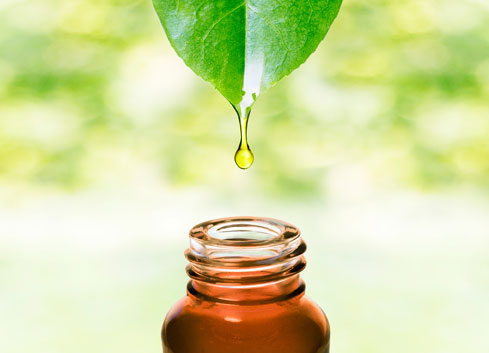
Everyone has two ages
April 17th, 2023Everyone has two ages, your chronological and biological age. How old you are and how you are ageing internally. Does the number of candles on your birthday cake tally up with the state of your physical health?
Poor lifestyle choices damage your DNA which can add years to your biological age and lead to poor quality of life.
The 25th of April is National DNA Day, and this year, biologists, scientists and genetic enthusiasts celebrate the discovery and research into DNA, including scientific advancements.
What is DNA?
DNA (deoxyribonucleic acid) is a molecule containing genetic code responsible for building and maintaining human structure. The mutation of DNA is what causes disease and premature ageing. Poor lifestyle choices damage your DNA which can add years to your biological age and lead to poor quality of life.
Forget the candles on your birthday cake and focus on your biological age
Ageing is part of life, and natural changes to your body start to happen…
Looking in the mirror, you start to see changes such as wrinkles on the face and neck, grey hair or hair loss, and your body changes shape.
Even more changes go on beneath the skin and it’s scary when you see the facts written down in front of you…
- Your bones shrink in size and density, making them susceptible to fractures, and muscles lose strength and endurance, affecting stability, flexibility, balance and coordination
- Changes happen to your cardiovascular system, and stiffening blood vessels and arteries cause the heart to work harder to pump blood around the body
- The large intestines start to change, leading to digestive problems, and the bladder becomes less elastic causing you to wee more, or less
- Nerve damage develops from medication, alcohol, caffeine, smoking and other pollutants
- The brain changes and affects memory and thinking patterns
- Gums start to recede and tooth decay sets in
- Fatty tissue builds up under the skin and brown ageing spots develop
- The metabolic rate slows down making it more challenging to maintain your weight
- Eventually, you become more prone to illness and disease
It doesn’t sound good but, c’est la vie! It is possible, however, to slow down the ageing process and lead a good quality of life through a series of lifestyle changes.
What the experts say about biological age
Experts know what your body should be doing through the ageing process and when it should happen. Bodies age at different paces internally so your biological age can go in ebbs and flows depending on lifestyle and the progression of health conditions and disease.
Through testing, experts can tell you how you are ageing internally. In an ideal world, your chronological and biological age should be the same or preferably, your biological age should be lower.
Adiv Johnson PhD is the director of research and innovation at Tally Health, a biotechnology company that focuses on ageing. He explains, “Biological age is the idea of, how am I ageing internally? If you look at two people who are both chronologically 70, one person can hike up a mountain or run a marathon and the other person is struggling to do day-to-day tasks, you quickly realise that they are ageing in different ways.”
Let’s take Robert and Gary as an example, both men are 70 years old.
Robert is very health conscious and decided to go for a DNA health and ancestry personal genetic test. The results revealed that he had a biological age of 50. Robert was in good general health and always led a healthy lifestyle. He exercised regularly, ate a nutritional diet, took time for relaxation and tried not to overindulge. Robert did chores, gardening, travelled and spending time with friends and family. His efforts to improve and maintain a healthy lifestyle paid off, potentially extending his lifespan and giving him a good quality of life as he aged.
Gary, also 70, had the same test and the results revealed that he was not ageing well internally, his biological age was that of an 80-year-old. Gary had neglected his physical and mental health for most of his adult years. He had experienced quite serious health conditions since he was 40, he was diabetic and had heart problems. Gary had a sedentary job, didn’t do a lot of exercise and overindulged in processed food and alcohol. The test results were a wake-up call for Gary, and he has made lifestyle changes to improve his health. He can repair some of the damage done to his body through neglect.
Robert and Gary could live until they are 85, and Gary could outlive Robert. However, Robert’s quality of life will have been so much better than Gary’s because he looked after himself and led a healthy lifestyle.
How can you find out your biological age?
Biological age measures the pace your body is ageing every year that you have been alive. You can have tests to find out your biological age by looking at heart and gut health and taking samples of skin, saliva, stools and blood. The specifics of testing can vary depending on the service provider.
Your ageing goals
In conclusion, to live a good quality of life your goal should be to lead a healthy lifestyle and look after yourself. Abusing your health can dramatically speed up your ageing inside and out.
What can you do to stay biologically younger?
You will already know the key factors of a healthy lifestyle and those apply to all the organs and cells in your body, but let’s recap – take a look at our tips.
- Love your heart! Partake in regular physical activity, eat a healthy diet, don’t smoke or overindulge and avoid substance abuse. Manage stress and get enough sleep
- Feed your bones and muscles! Make sure to incorporate enough calcium and vitamin D into your diet. Exercise to maintain strength and flexibility
- Don’t ignore your bowel movements! Improve your gut health and prevent constipation by staying active, eating plenty of fibre, fruits and vegetables and drinking lots of water
- Wee regularly! Maintain a strong bladder by going to the toilet regularly, avoiding bladder irritants and flushing out the toxins in the body
- Try not to forget! Prevent memory problems by doing physical activity, staying hydrated, being mentally active and sleeping well. Make the effort to socialise, avoid overindulging in alcohol and treat health conditions and disease
- Keep your eyes and ears open! Eye and ear health like everything else we are talking about, is really important. Precautions should be taken to reduce the risk of damage, such as wearing sunglasses and having regular eye tests. Wearing ear defenders can protect your ears from very loud noises when necessary
- Show those pearly whites! Oral health problems can be avoided by following a good teeth cleaning regime and attending regular dental checkups
- Be body conscious! Monitor your weight, make sure you are getting the good nutritional value from what you eat and drink and have sensible portion sizes
- Softly, softly! Be gentle on your skin, avoid hard abrasives and keep your skin cleansed and moisturised. Protect it from the sun and prevent damage from UVAs
- Minimise exposure! Give up smoking, don’t use recreational drugs, limit alcohol consumption and minimise contact with pollutants inside and out
- Products worth mentioning are Nature’s Marvels peptides collection. They are designed to treat, stimulate, repair, restore, normalise and improve health conditions and problems. You can find out more information here
Get more information about National DNA Day here.
References
- https://www.elysiumhealth.com/blogs/aging101/what-is-your-biological-age-and-why-does-it-matter#:~:text=Chemical%20modifications%20on%20specific%20parts,your%20overall%20rate%20of%20aging.
- https://www.upi.com/Health_News/2019/07/16/Lifestyle-choices-can-affect-your-DNA-and-health/1981563288365/
- https://www.ncbi.nlm.nih.gov/pmc/articles/PMC7846274/#:~:text=DNA%20damage%20contributes%20to%20aging,undamaged%20cells%20through%20their%20SASP.
- https://www.mayoclinic.org/healthy-lifestyle/healthy-aging/in-depth/aging/art-20046070#:~:text=joints%20and%20muscles-,What’s%20happening,your%20coordination%2C%20stability%20and%20balance








